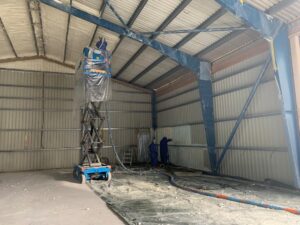Custom eLearning Solutions for Remote Teams That Work
Remote work is no longer a temporary solution, but a long-term aspect of most organizations worldwide. While as much as this transformation has created endless possibilities, flexibility, access to global talent, and increased productivity, it has also put into sharp focus a crucial challenge: how do we efficiently train remote teams?
Traditional training methods simply no longer work. Off-the-shelf eLearning modules are impersonal, outdated, and too generic to resonate with a scattered workforce. That is where custom eLearning steps in offering a concentrated, interactive, and highly effective means to train scattered employees.
Now, we will examine how Custom eLearning Solutions accelerates productivity in conjunction with remote teams, and why it is swiftly becoming the benchmark of modern workforce development.
Why Remote Teams Need Custom eLearning Solutions: What we miss in Standard Learning
Generic eLearning content may seem like a quick fix, but it typically falls short in delivering lasting impact. Here’s why:
- Misses the mark: Content is overly broad and fails to resonate with your company’s instruments, culture, or even its niche.
- Fails to engage: Without interactive or custom information, learners tune out.
- Doesn’t consider remote dynamics: Content that is ready-made ignores asynchronous collaboration, time zone differences, and the myriad communication challenges remote teams face.
In contrast, Custom eLearning Solutions are tailored to specific learners. These solutions consider your company’s workflows, tools, pain points, culture, and relevance. Thus, achieving learning that is more amenable and easier to apply.
What Makes Custom eLearning Work for Remote Teams?
Below is a list of features which contribute to the success of custom eLearning for remote work:
1. Flexibility That Accommodates Remote Work
Most employees function from varied time zones and have different work hours. Custom eLearning solutions can support:
- Self-paced learning modules
- Access via mobile devices and while offline
- Short, concise microlearning sessions that can be completed in between meetings or during downtime
Such flexibility removes barriers to learning and enables improvement while still conducting business as usual.
2. Hyper-Relevant Content
Custom eLearning reflects your real business scenarios, tools, and culture. It’s your language, literally and figuratively. Custom training enables you to:
- Use company-specific workflows
- Use real case studies and real data
- Recreate real remote communication tools like Slack, Zoom, or project management software
When learners see familiar environments, they’re likely to engage and apply what they learned right away.
3. Interactive and Social Learning Elements
Just because your team is working remotely doesn’t mean learning has to be solitary. Custom eLearning provides for:
- Maintenance of engagement through interactive simulations and gamification
- Training in communication and empathy as soft skills through virtual role-play activities
- Collaboration and sharing of information through peer discussion boards and feedback forums
These features enhance the same collaborative attitude as face-to-face training, but through screens.
4. Adaptive Learning Paths
People don’t learn the same way, especially in remote settings. Each employee has their own strengths, areas they’re still working on, and goals they’re aiming for. That’s why personalized eLearning matters. It helps you:
- Get a clear picture of where someone stands through skill checks
- Adjust their learning flow as they grow
- Offer content that actually fits their habits and how they work
When learning feels built around the person, not just the job, it clicks better. And that means they move forward, not just on paper, but in ways that line up with what the company needs too.
5. Ongoing Improvement by Data-Driven Insights
Custom platforms often feature analytics that track:
- Completion rates
- Quiz and test scores
- Time spent on modules
- Drop-off points
These results are gold for L&D and HR teams to improve content, identify learning needs, and measure ROI. Training as a strategic initiative rather than a compliance box is facilitated through real-time data.
How To Implement Custom eLearning Solution for Better Remote Workforce
Consider a global software development company with offsite developers across five continents. Traditional onboarding used to take weeks and was hard to scale. By migrating to a customized eLearning solution, they:
- Created onboarding modules with virtual coding labs
- Integrated company-specific project management workflows
- Utilized AI-powered assessments to identify training needs by role and geography
- Reduced onboarding by 40% and improved early productivity
Only when there are learning experiences tailored to organizational needs is such an effect possible.
The Long-Term Advantages of Custom eLearning Solutions
Adopting custom eLearning solutions doesn’t just solve short-term challenges—it builds a long-term culture of continuous learning. Here’s how:
- Scalability: Easily expand or update training modules as your business grows
- Localization: Customize content for different languages and regions
- Retention: Better engagement leads to higher knowledge retention and satisfaction
- Cost-Effective: Though custom eLearning has a higher upfront cost, it pays off with higher performance, lower turnover, and reduced training hours over time
Conclusion
In today’s hybrid and remote-first world, your team’s success depends on how well they’re trained, supported, and engaged. Generic learning just won’t cut it anymore. Custom eLearning solutions offer a smarter, more strategic way of enabling remote workers with content that’s relevant, interactive, and real-world-designed.
They don’t just educate, they transform. And for remote teams, that type of transformation isn’t just useful, it’s vital.













